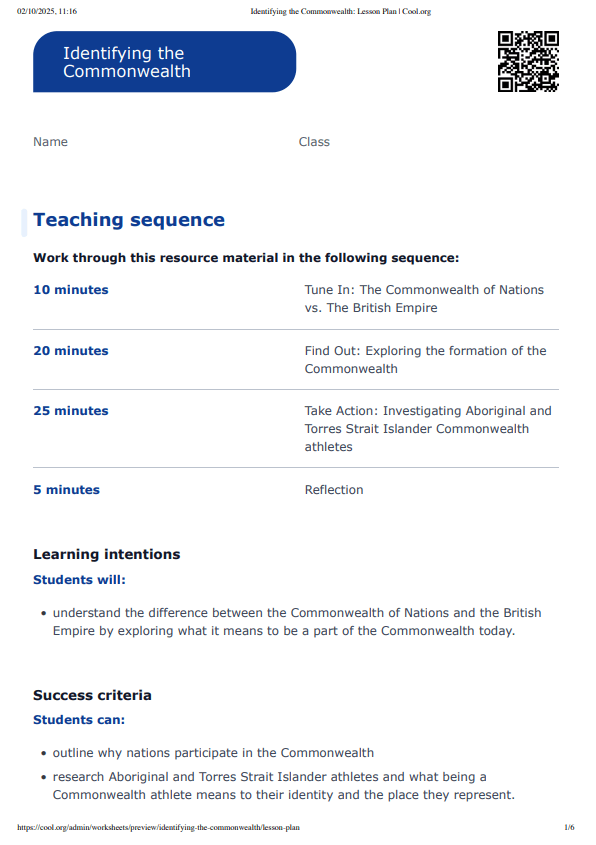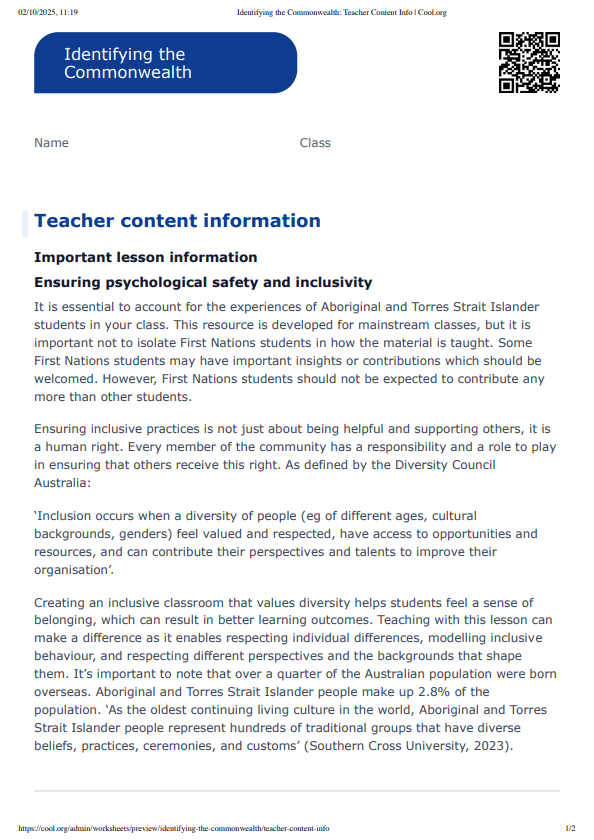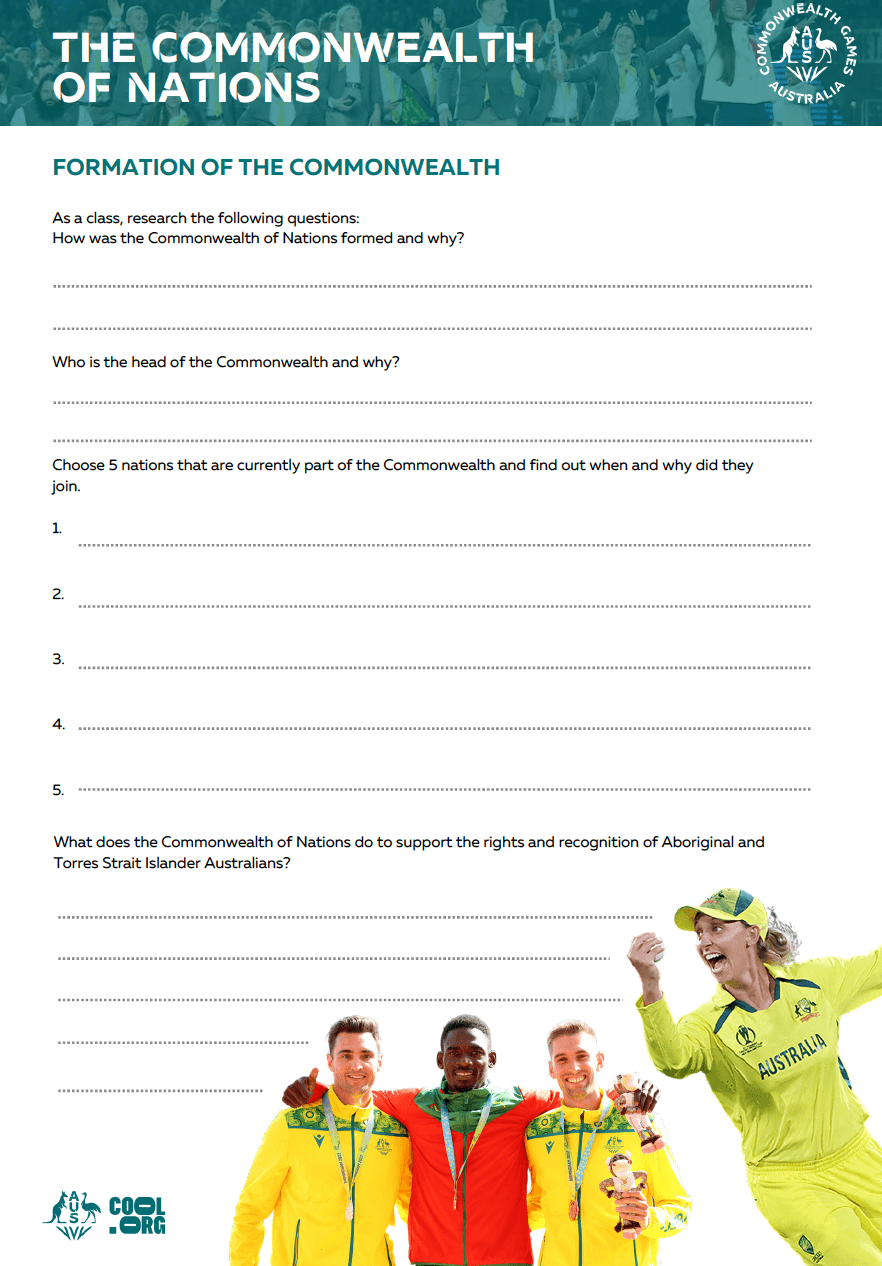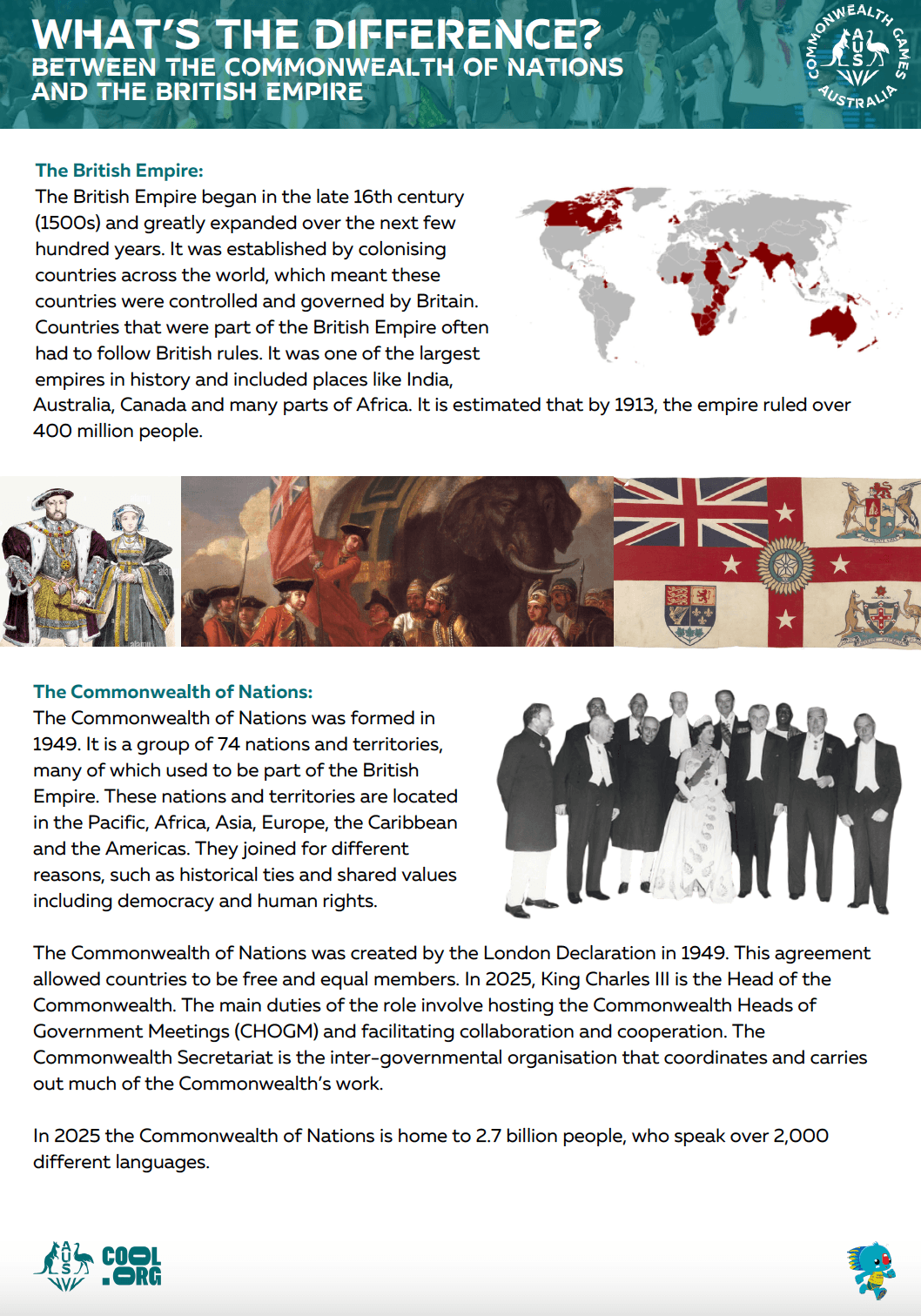Learning intentions
Students will:
- understand the difference between the Commonwealth of Nations and the British Empire by exploring what it means to be a part of the Commonwealth today.
Success criteria
Students can:
- outline why nations participate in the Commonwealth
- research Aboriginal and Torres Strait Islander athletes and what being a Commonwealth athlete means to their identity and the place they represent.




